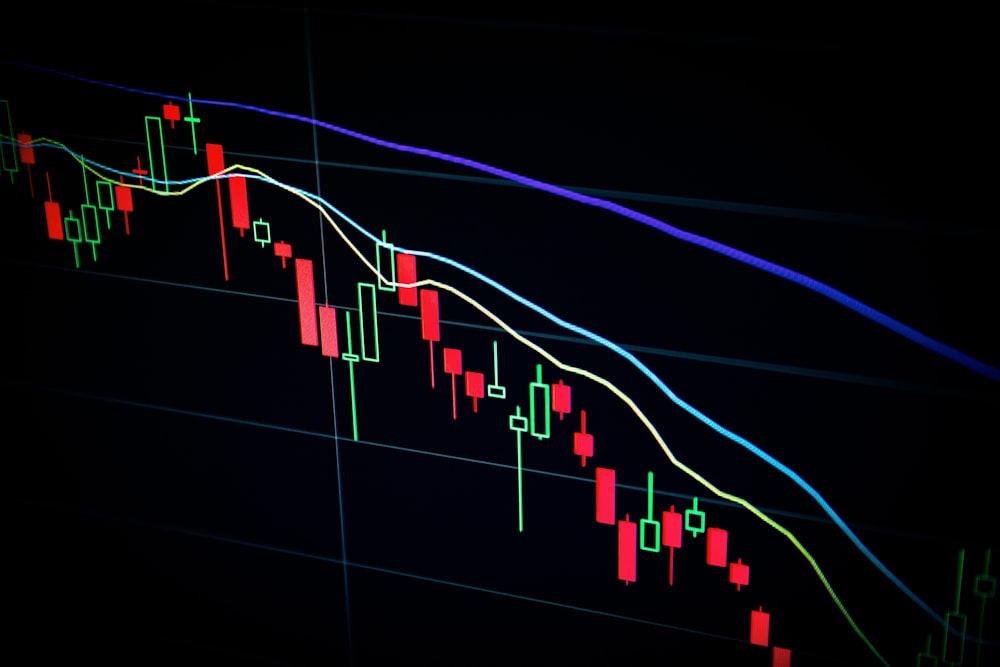
Image Source: Unsplash
## Introduction to Forex Trading
Forex trading, also known as foreign exchange trading, is the buying and selling of currencies on the global market. It is a decentralized market that operates 24 hours a day, five days a week. Forex trading is a highly liquid and volatile market, with trillions of dollars being traded daily. This article aims to explore the possibility of whether forex trading can be stopped or not.
Understanding the Global Forex Market
The global forex market is the largest and most liquid financial market in the world. It operates through a network of banks, financial institutions, and individual traders who buy and sell currencies. The forex market is unique as it is not centralized and has no physical location. Instead, it is an over-the-counter market where trading occurs electronically.
The forex market operates on the principle of exchanging one currency for another at an agreed-upon price. Currency pairs are traded, with the value of one currency relative to another constantly fluctuating based on various factors such as economic indicators, geopolitical events, and market sentiment.
The Growth and Popularity of Forex Trading
Forex trading has witnessed significant growth and popularity in recent years. The accessibility of online trading platforms and the availability of educational resources have made it easier for individuals to participate in forex trading. Moreover, the potential for high returns and the ability to trade on leverage have attracted many investors.
The forex market offers opportunities for both short-term traders and long-term investors. Traders can take advantage of price fluctuations and make profits through speculation. On the other hand, investors may engage in forex trading to diversify their portfolios and hedge against currency risks.
Can Forex Trading Be Stopped: Exploring the Possibilities
While forex trading has gained immense popularity, the question remains: can it be stopped? There are several perspectives to consider when examining this possibility.
Challenges in Regulating Forex Trading
Regulating the forex market poses significant challenges. One of the main difficulties lies in its decentralized nature. Unlike stock markets, where there are central exchanges and regulatory bodies overseeing transactions, the forex market lacks a single governing entity. This makes it challenging to implement consistent regulations and ensure fair trading practices.
Additionally, the global nature of the forex market means that it is subject to different regulatory frameworks across countries. Some countries have stricter regulations to protect investors, while others have more lenient policies. Harmonizing regulations worldwide would require extensive collaboration and coordination among governments and regulatory bodies.
The Role of Governments and Regulatory Bodies
Governments and regulatory bodies play a crucial role in overseeing financial markets, including forex trading. They aim to protect investors, maintain market integrity, and prevent fraudulent activities. However, completely stopping forex trading would require a unified effort from governments worldwide, which is highly unlikely.
Instead of stopping forex trading, governments and regulatory bodies focus on implementing measures to enhance transparency, reduce market manipulation, and protect investors. They may introduce regulations such as licensing requirements for brokers, restrictions on leverage, and increased disclosure requirements.
Potential Consequences of Stopping Forex Trading
Stopping forex trading altogether would have significant consequences for the global economy. The forex market plays a vital role in facilitating international trade and investment. It enables businesses to convert currencies for conducting cross-border transactions. Moreover, forex trading contributes to price discovery and market efficiency.
If forex trading were to be stopped, it would disrupt global financial flows and hinder economic growth. Businesses would face difficulties in hedging currency risks, and the cost of international trade would increase. Moreover, stopping forex trading may lead to the emergence of black markets and unregulated trading platforms, posing even greater risks to investors.
Alternatives to Stopping Forex Trading
Rather than stopping forex trading, governments and regulatory bodies focus on implementing measures to mitigate risks and protect investors. Some of the alternatives to consider include:
1. Strengthening Regulations
Governments can enhance regulations to ensure fair trading practices and protect investors. This may involve imposing stricter licensing requirements for brokers, implementing robust reporting and disclosure mechanisms, and setting limits on leverage to prevent excessive risk-taking.
2. Educating Investors
Promoting investor education is crucial in mitigating risks associated with forex trading. Governments and regulatory bodies can collaborate with industry experts to develop educational programs that raise awareness about the risks and rewards of forex trading. This would empower investors to make informed decisions and reduce the likelihood of falling victim to fraudulent schemes.
3. Enhancing Market Surveillance
Monitoring and surveillance systems can be improved to detect market manipulation and fraudulent activities. Governments and regulatory bodies can invest in advanced technologies and analytical tools to identify suspicious trading patterns and take appropriate actions to maintain market integrity.
The Future of Forex Trading
The future of forex trading looks promising. It is expected to continue growing as more individuals and institutions participate in the market. However, the landscape of forex trading may evolve as technology advances and regulations adapt to changing market dynamics.
Advancements in financial technology, such as algorithmic trading and artificial intelligence, are already shaping the way forex trading is conducted. These innovations improve efficiency and provide new trading opportunities. Additionally, regulatory frameworks are likely to evolve to address emerging risks and protect investors in an increasingly digital and interconnected world.
Conclusion: Weighing the Possibilities
In conclusion, the possibility of stopping forex trading is highly unlikely and would have significant consequences for the global economy. Instead, governments and regulatory bodies focus on implementing measures to enhance transparency, protect investors, and maintain market integrity. Strengthening regulations, educating investors, and enhancing market surveillance are viable alternatives to mitigate risks associated with forex trading. The future of forex trading looks promising, with advancements in technology and evolving regulations shaping the landscape of this dynamic market.
